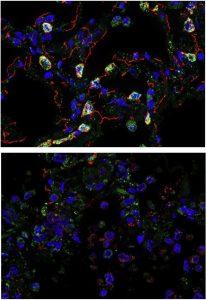Vaccinations that offer long-lasting protection against influenza, coronaviruses, and respiratory syncytial virus (RSV) have been challenging to create; recent research has now investigated the problems and outlined alternatives to better vaccines.
Flu, RSV, SARS-CoV-2, and “common cold” coronaviruses have multiple traits that allow them to induce repeated re-infections, unlike the respiratory viruses that cause measles, mumps, and rubella, for whom vaccination or recovery from sickness gives decades-long protection against subsequent infection (Figure 1). These include extremely quick host-to-host transmission, fast host-to-host replication, and replication in the nasal mucosa as opposed to the entire body. Because of their final characteristic, non-systemic replication, these viruses do not fully activate the adaptive immune response, which normally takes a week or more to develop.
According to the scientists, new understanding on numerous fronts will be necessary to create the next generation of enhanced vaccinations against viruses that replicate in the mucosa. For instance, additional research is needed to understand how RSV, coronaviruses, and flu viruses interact with immune system elements that are mostly or only active in the upper respiratory system. These interactions have changed over time and produced “immune tolerance,” where the human host tolerates brief, restricted viral infections that are often not fatal to prevent the negative effects of a full-scale immune system onslaught.
When possible, the authors remark that mucosal immunisation appears to be the best method of immunising against the relevant viruses. However, substantial information gaps must be addressed in order to create effective mucosal vaccines.
More innovation is needed, and researchers may need modify existing approaches in order to disrupt and innovate in the vaccine development space.
Journal article: Morens, D.M., et al., 2023. Rethinking next-generation vaccines for coronaviruses, influenzaviruses, and other respiratory viruses. Cell Host & Microbe.
Summary by Stefan Botha











